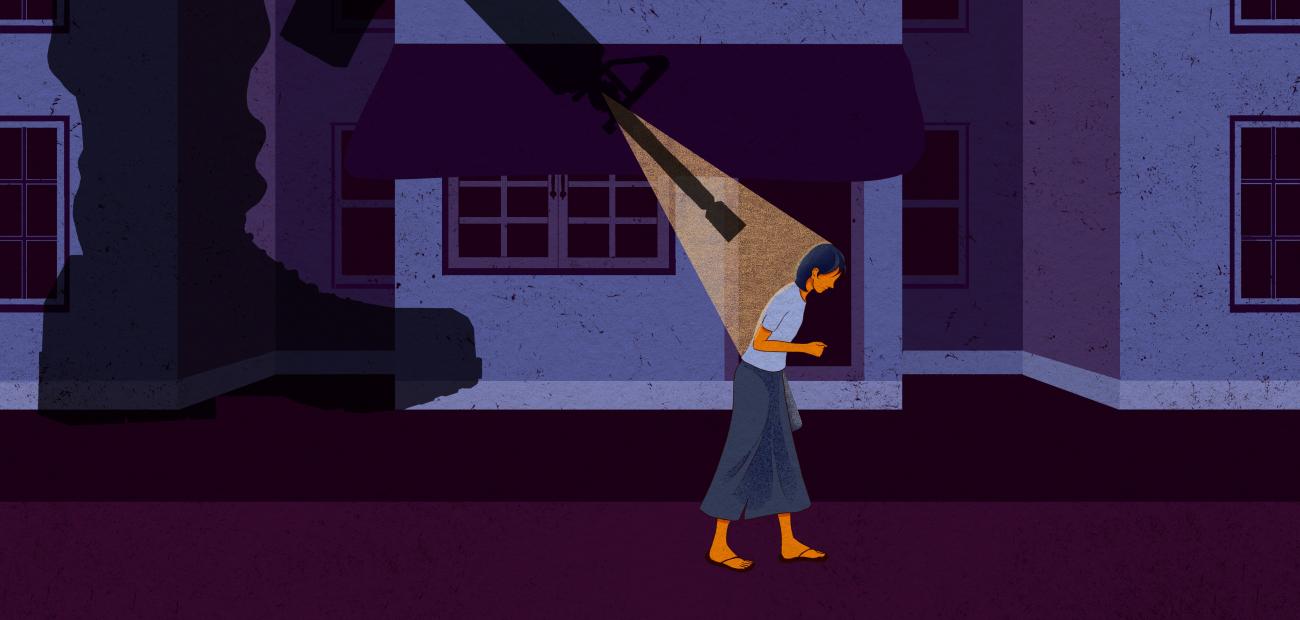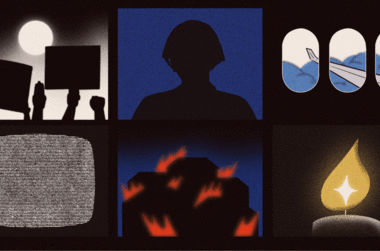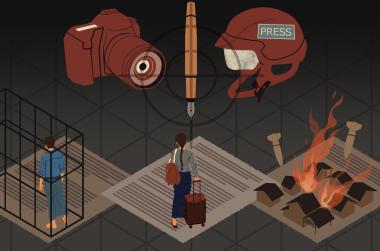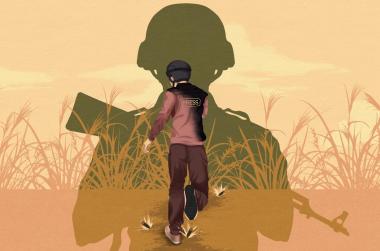The writer is a journalist in Yangon Region who is receiving support from The Kite Tales to write these diaries.
One night a little while ago, I found myself working late. I looked at the clock and it was already half past eight so I decided to go out for dinner instead of cooking at home. Right at that moment, a friend called me saying she was nearby and suggesting we go out for a bite.
The two of us strolled out into the local streets, chatting along the way. Just as we were about to reach the restaurant, there was a sudden, deafening bang and the ground shook. I was startled, but I knew immediately what it was: A bomb had gone off.
In Yangon, there are constant explosions targeting military checkpoints. The underground revolutionary groups warn the public not to get close to where the troops are stationed, but that's harder to do when the soldiers are in the midst of the city. We guessed the explosion was likely to have happened at a military base on the main road to the west of where we were.
Suddenly, a second bomb went off. This one was loud too. It was followed by the sound of gunshots - probably soldiers shooting randomly in all directions.
The sound of continuous gunfire scared everyone and caused them to scatter. Staff at the shops along the street dragged their goods inside as people ran into their homes. All the shops and houses shut their doors in a matter of minutes. Because the electricity was already out, the whole street suddenly became very dark and very quiet.
My friend and I were the only ones left outside. And we had nowhere to hide.
Not only did we find ourselves close to the explosions, we were also now too far from my house. I felt panic rising. If the soldiers came down this road, we would be sure to be arrested. We were frozen with fear.
Young and out on the street. These alone are grounds for suspicion and arrest. The military’s routine whenever there is an explosion is to first arrest the youths in the vicinity and then look for the culprit. Young men in particular are more likely to be checked and arrested.
If they check your phone and find any information about the revolution, or anything that could make them think you support the revolution, you will be arrested immediately.
Young people don’t feel safe.
A young Yangon resident told me recently he was left shaken after being stopped and searched while travelling in the city with colleagues. He is now afraid he will be arrested and charged without reason or just because the soldiers want some money.
“You have to prepare as best as you can before you leave the house so that you’ll be safe,” he told me.
“You have to delete the contents of your phone. I would delete pictures that could get me in trouble if found. You have to do all these things first before you go out, even if it’s just to buy food at the top of your street.”
Under the military dictatorship, everyone, whether they live in the villages or towns, are living in fear and anxiety.
Luckily that night, we caught the attention of a shopkeeper who let us take refuge until things calmed down.
After a while we decided to risk the walk back home, but the road was still dark and silent and terrifying. We were scared stiff of running into patrolling troops. It was only when we were finally through my front door that I could breathe a sigh of relief.
I heard later that two or three young civilians who passed by the area after the bombs went off were seen being forced to kneel on the street and were questioned by soldiers. No one could say for sure what happened to them.
Artwork by Songbird who is receiving support from The Kite Tales to produce illustrations.





